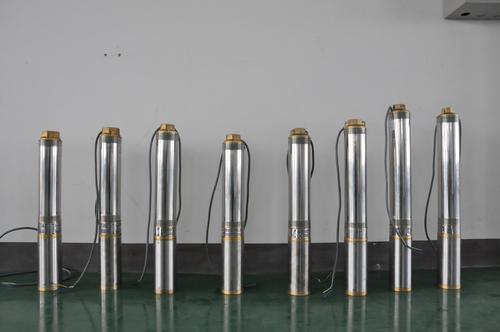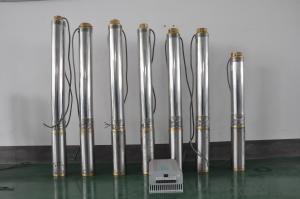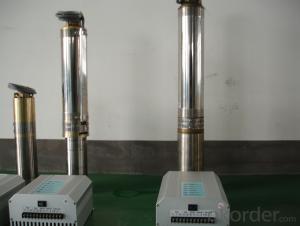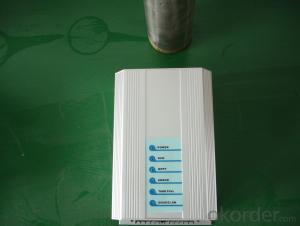Solar Pump 5hp DC Solar Deepwell Water Pump
- Loading Port:
- Shanghai
- Payment Terms:
- TT OR LC
- Min Order Qty:
- -
- Supply Capability:
- 300 set/month
OKorder Service Pledge
OKorder Financial Service
You Might Also Like
Motor 24V:
1 matainance-free brushless DC motor
2 water filled
3 premium materials,Stainless steel SS304
4 no electronic in the motor
rated power:0.8kw 1kw
effiency:more than 95%
motor speed:1750rpm
isulation class:F
enclousre class:IP68
submersion: max 250m
Controller SPC1000:
power:max.1kw
input voltage:max.120V
motor current:max.10A
effiency:max.95%
ambient Tem:-20C-----50C
enclosure:IP54
how is the rotor made:
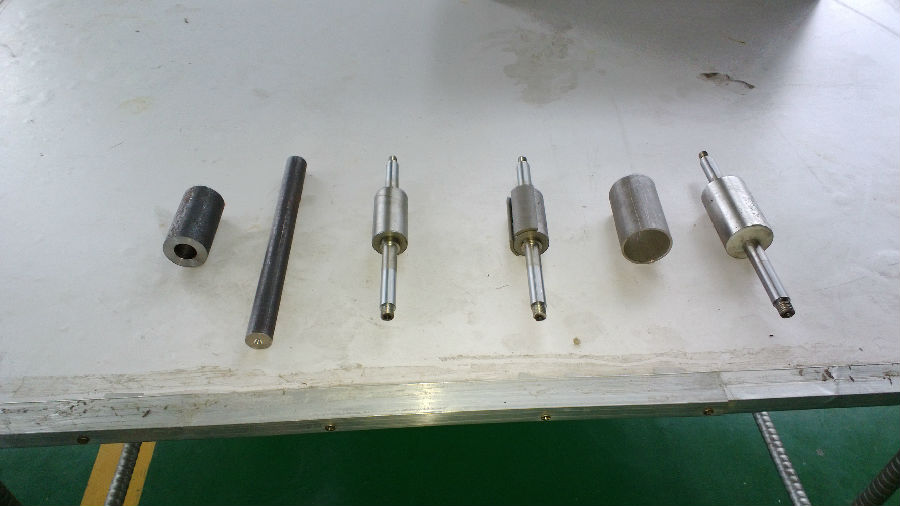
how is the motor made:
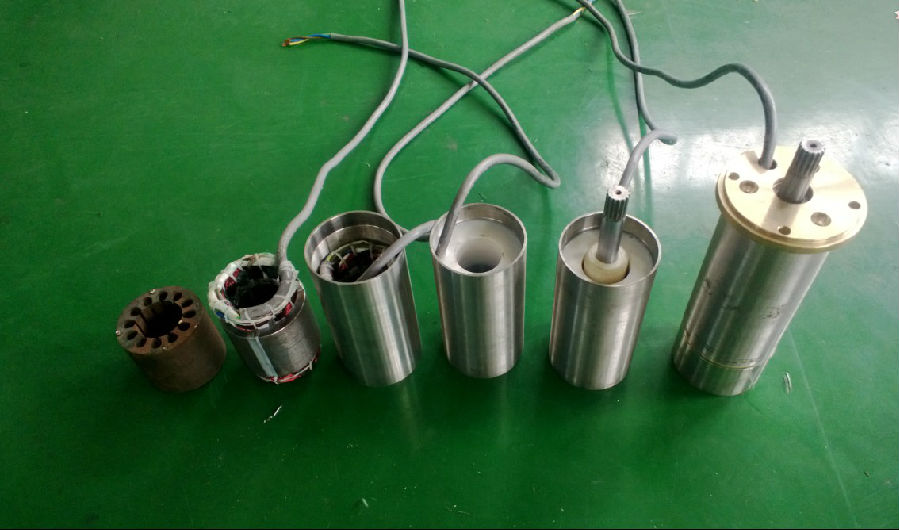
the pump :
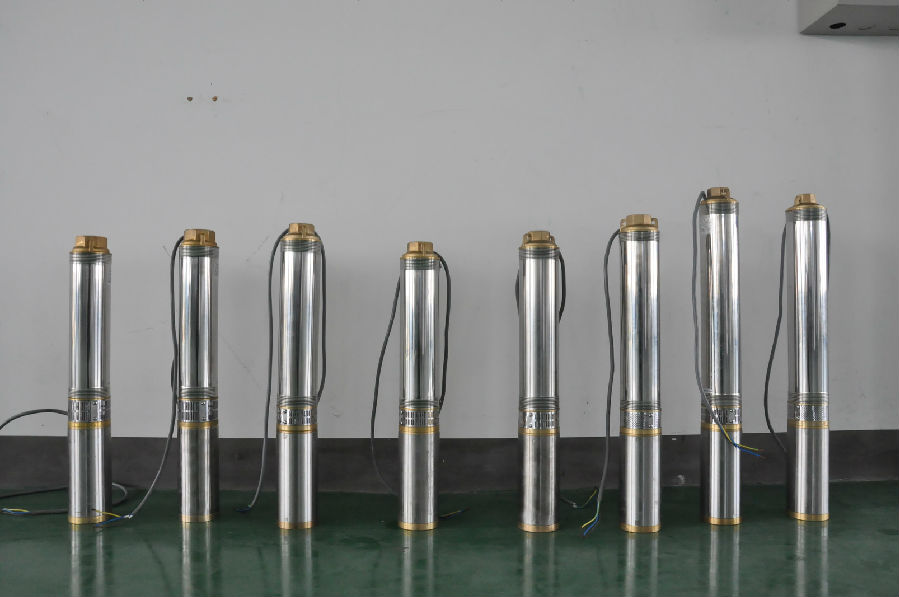
controller terminal connection:
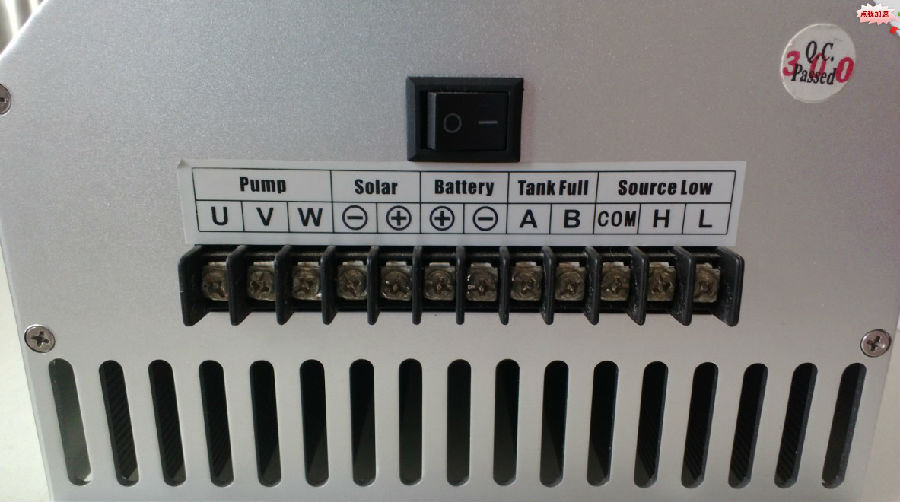
The permanent magnet:

the impeller:
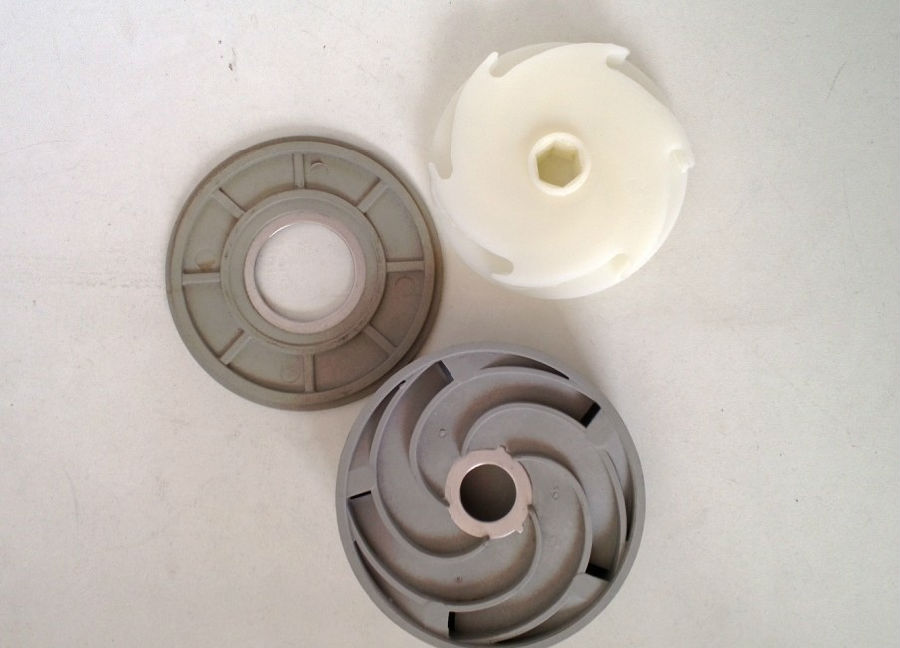
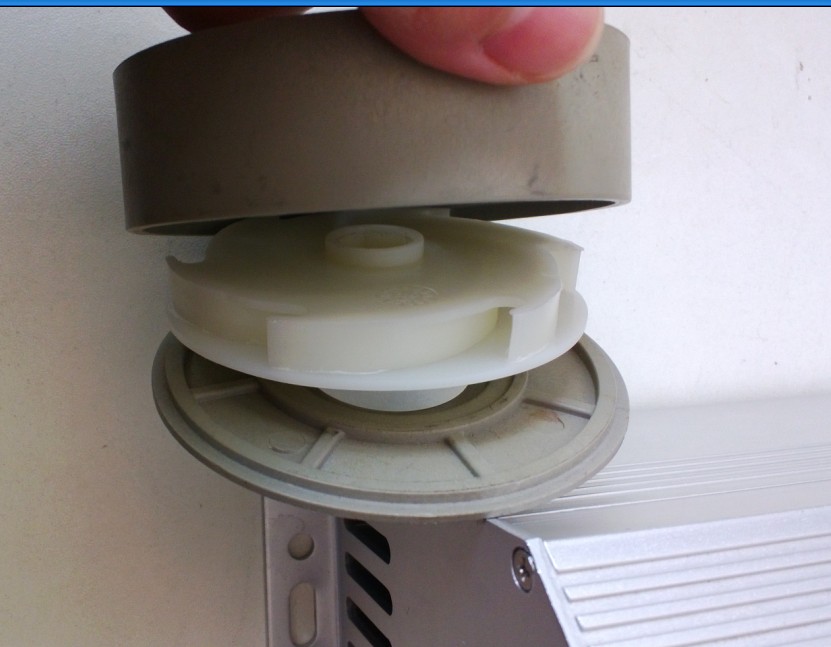
controller box:
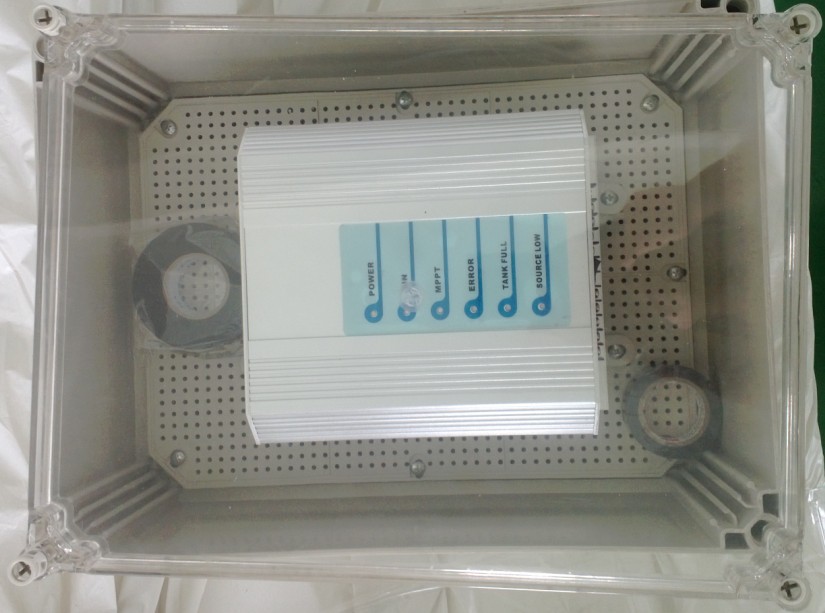
the senors:
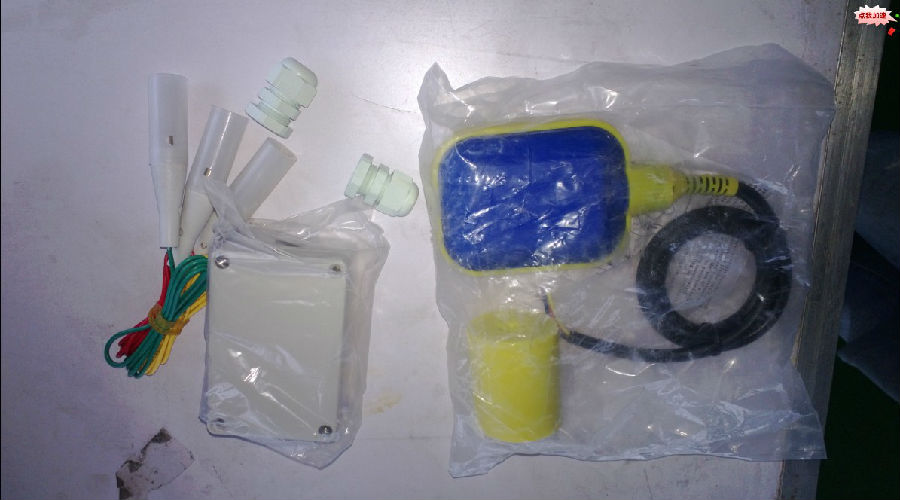
the test:
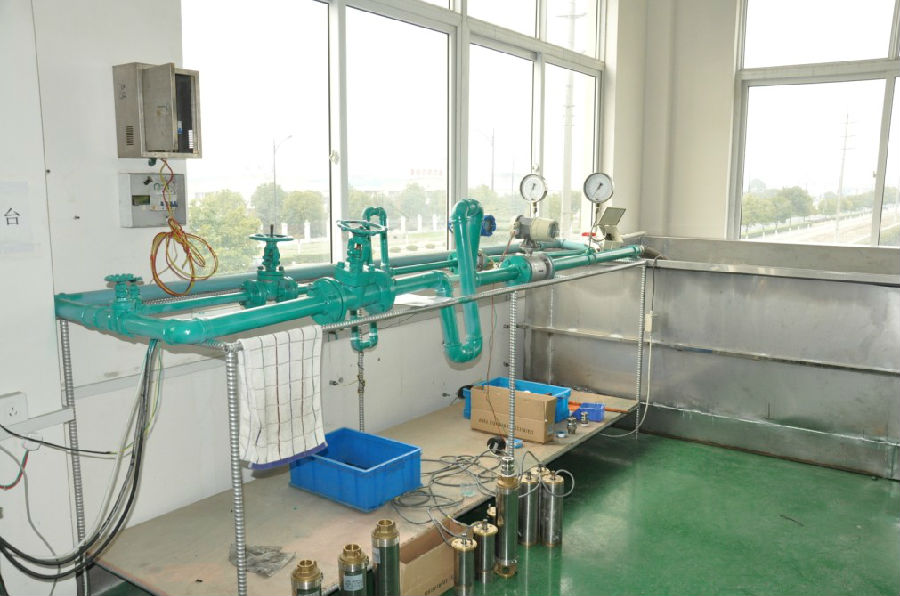
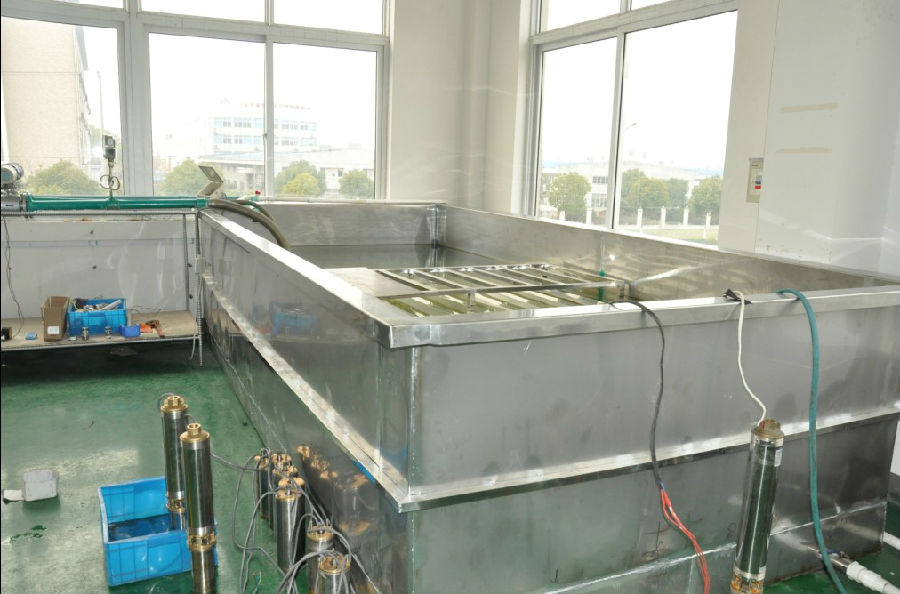
the application:
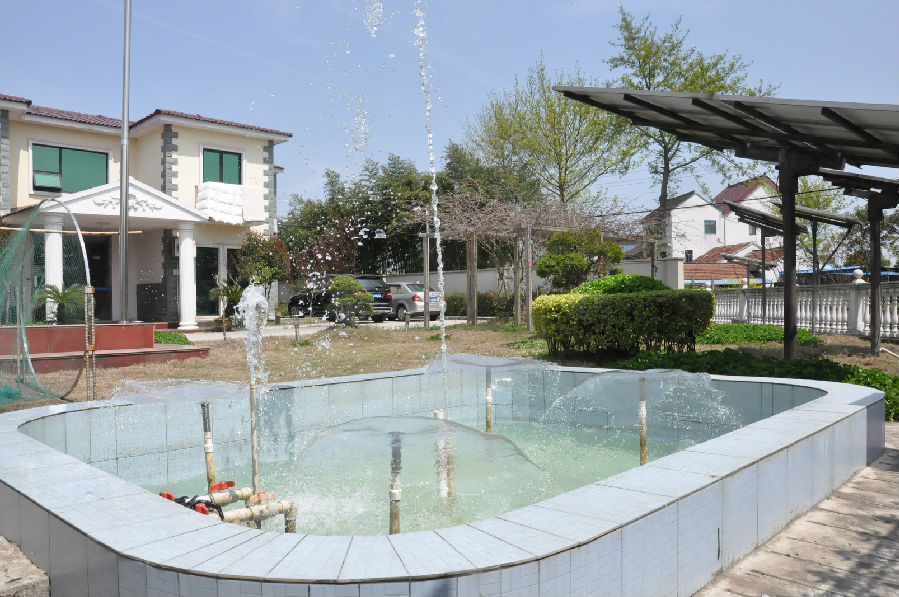
the package:
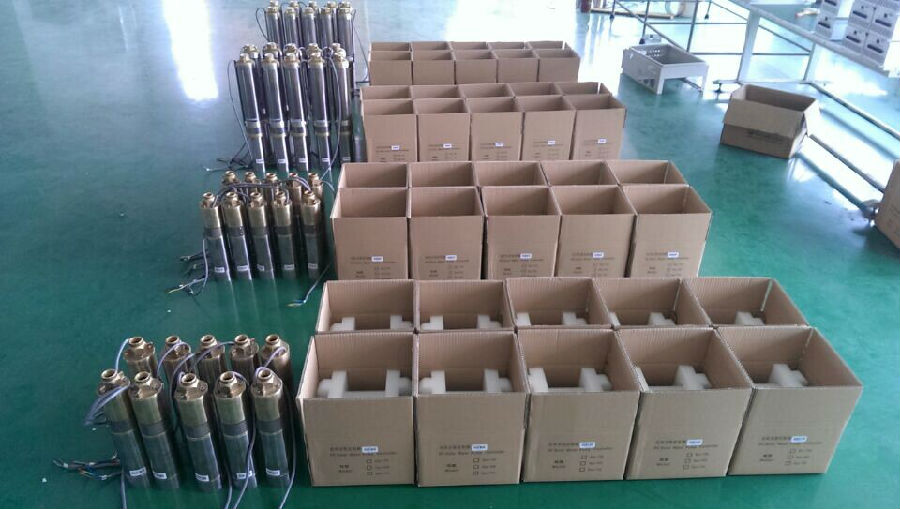
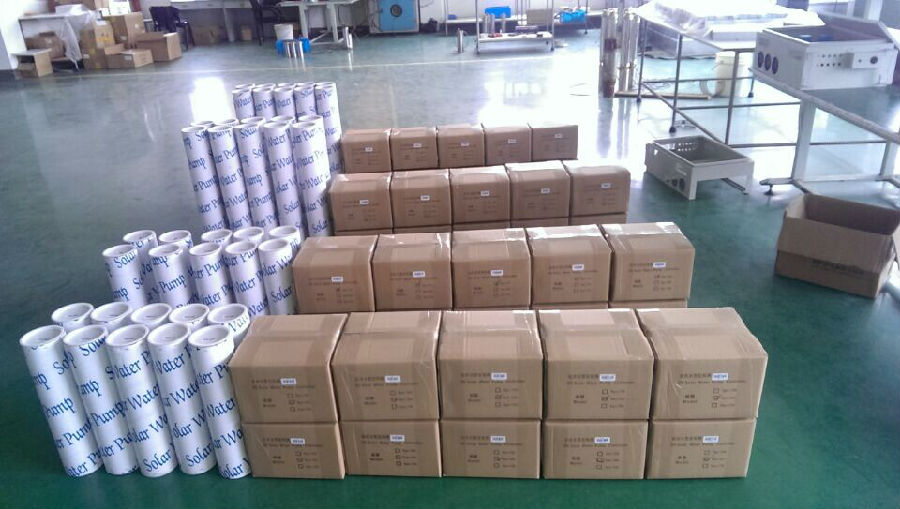

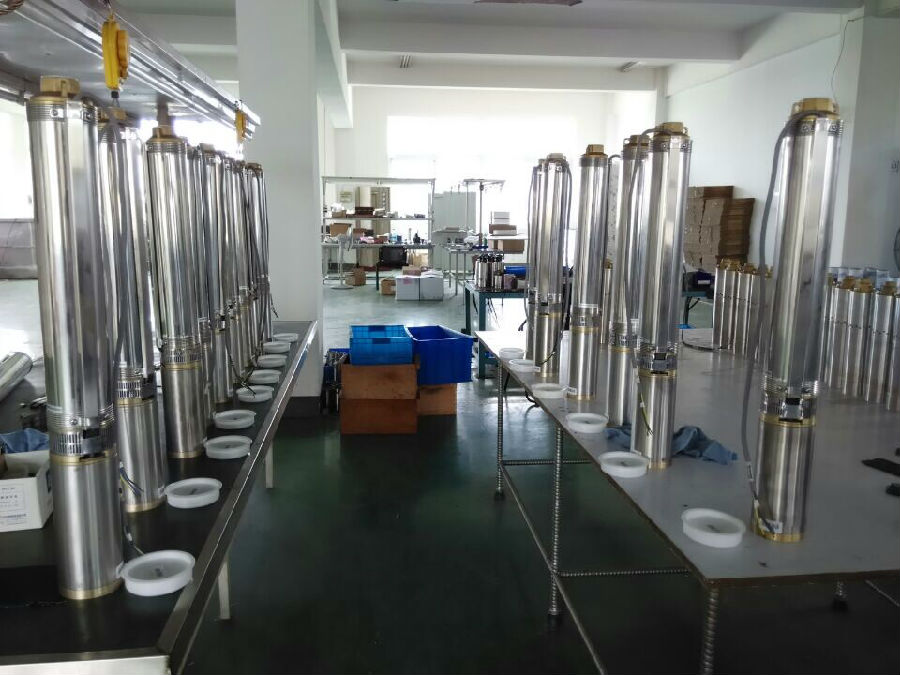
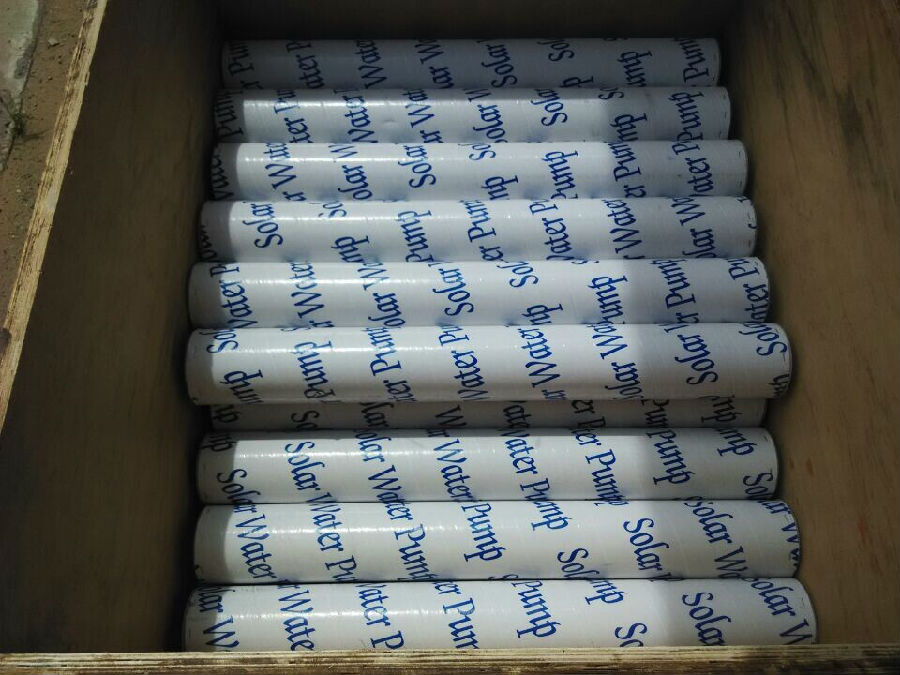
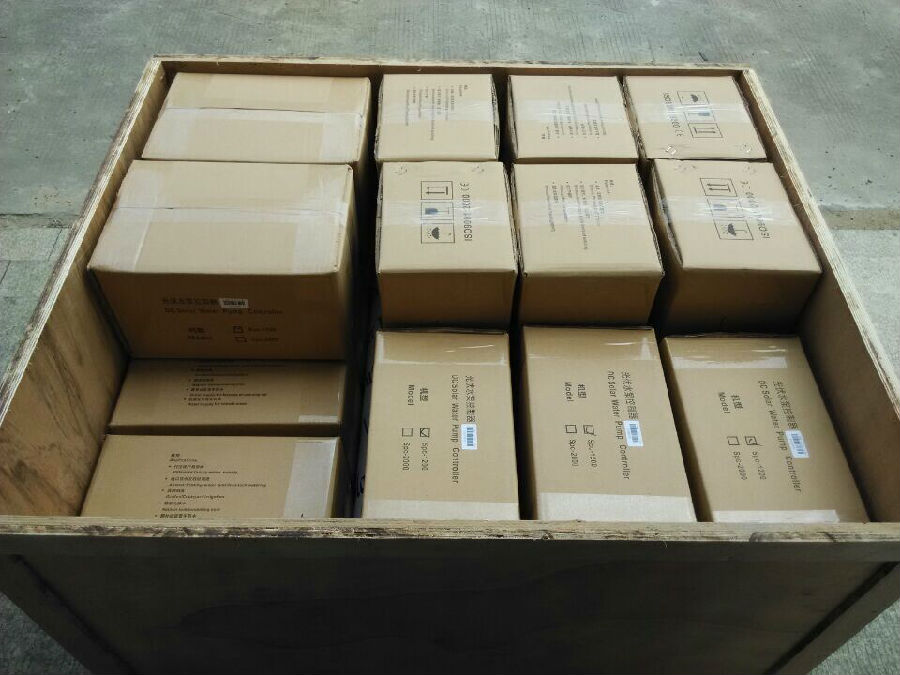
- Q: What is the expected energy savings from using a solar pump?
- The expected energy savings from using a solar pump can vary depending on several factors such as the size and efficiency of the pump, the amount of sunlight available, and the specific application. However, generally speaking, solar pumps have the potential to provide significant energy savings compared to traditional electric pumps as they utilize renewable solar energy instead of relying solely on grid electricity. This can result in reduced electricity bills and a more sustainable and environmentally friendly pumping solution.
- Q: Are there any limitations to the size of the solar pump system that can be installed?
- Yes, there are some limitations to the size of the solar pump system that can be installed. One limitation is the availability of space for installation. Solar pump systems require a sufficient area with good sunlight exposure to install the solar panels. If there is limited space or if the available space is shaded, it may not be possible to install a large solar pump system. Additionally, the capacity of the solar panels to generate electricity limits the size of the pump system. The size of the solar panels determines the amount of power that can be produced, and this power is used to operate the pump. If the solar panels have a lower capacity, it will limit the size of the pump system that can be installed. Another limitation is the water source and the amount of water that needs to be pumped. The solar pump system needs to be matched with the water demand and the capacity of the water source. If the water demand is high or the water source has limited capacity, it may not be feasible to install a large solar pump system. Lastly, budget constraints can also limit the size of the solar pump system. Larger systems generally require more solar panels, batteries, and other components, which can increase the cost. If there is a limited budget, it may not be possible to install a larger system and a smaller pump system would be more suitable. Overall, while solar pump systems offer a sustainable and efficient solution for pumping water, there are limitations to their size due to space availability, solar panel capacity, water source, and budget constraints. It is important to carefully assess these factors before determining the size of the solar pump system to be installed.
- Q: How does the size of a solar panel affect the performance of a solar pump?
- The size of a solar panel directly affects the performance of a solar pump. A larger solar panel generates more electricity, providing a higher power output to the pump. This, in turn, increases the pump's efficiency and overall performance, enabling it to pump water at a faster rate and in greater quantities. Conversely, a smaller solar panel generates less electricity, resulting in a lower power output and reduced performance for the solar pump.
- Q: Can a solar pump be used for desalination processes?
- Certainly, desalination processes can utilize a solar pump. By harnessing solar energy, these pumps can extract water from wells, rivers, or oceans. Specifically for desalination, the solar pump would draw seawater and transport it to the desalination plant. Desalination refers to the removal of salt and impurities from seawater, making it safe for human consumption or irrigation. Solar pumps are an excellent choice for this purpose due to their use of renewable energy, resulting in cost-effectiveness and environmental friendliness. Various desalination techniques, such as reverse osmosis (RO) or multi-stage flash (MSF) distillation, can benefit from the utilization of solar pumps. In the RO process, the pump applies pressure to seawater through a semi-permeable membrane, separating the salt and impurities. In MSF distillation, the pump transports seawater to heat exchangers where it is heated and evaporated, leaving behind salt and other impurities. The use of solar pumps in desalination processes offers several advantages. Firstly, solar energy is abundant and free, significantly reducing operational costs compared to pumps powered by traditional fuels. Additionally, solar pumps require minimal maintenance and have a long lifespan, providing reliability and sustainability to desalination plants. Moreover, employing solar pumps for desalination reduces reliance on fossil fuels, resulting in reduced greenhouse gas emissions and environmental impact. This aligns with global efforts towards clean energy and sustainability. To conclude, solar pumps are indeed a viable option for desalination processes, providing a cost-effective and environmentally friendly solution to extract and treat seawater for various applications.
- Q: Can solar pumps be used for water supply in remote community or social projects?
- Yes, solar pumps can be effectively used for water supply in remote communities or social projects. Solar pumps are a sustainable and cost-effective solution for accessing water in areas where traditional electricity supply may be limited or unavailable. Solar pumps harness energy from the sun, which eliminates the need for fuel or electricity, making them a reliable and environmentally friendly option. Additionally, solar pumps have low maintenance requirements and can operate in remote locations, making them suitable for providing water supply in underserved communities or social projects.
- Q: Can a solar pump be used for water supply in a desert?
- Yes, a solar pump can be used for water supply in a desert. Solar pumps are powered by solar energy, which is abundant in desert regions. They can efficiently draw water from underground sources, such as wells or boreholes, and provide a reliable water supply for various purposes, including irrigation, livestock watering, and domestic use. The use of solar pumps in deserts can contribute to sustainable water management and reduce dependence on fossil fuels.
- Q: Can a solar pump be used for water supply in off-grid botanical gardens?
- Water supply in off-grid botanical gardens can be facilitated by the use of solar pumps. These pumps are an environmentally friendly and sustainable option for remote areas lacking traditional electricity. They function by converting sunlight into electricity through solar panels, which in turn powers the pump to draw water from sources like wells or ponds. Consistent and reliable water supply is crucial for the well-being and growth of plants in botanical gardens. Solar pumps offer an ideal solution for such locations, as they eliminate the need for grid electricity or fuel. Furthermore, they are available in various sizes and capacities to meet the specific requirements of each botanical garden. These pumps can be utilized for irrigation systems, water features, and even to provide drinking water for visitors and animals within the garden. Additionally, solar pumps can be integrated with water storage systems, such as tanks or cisterns, to store water during periods of limited sunlight or high demand. By implementing solar pumps, off-grid botanical gardens can reduce their reliance on fossil fuels and minimize their carbon footprint. Furthermore, they can enjoy the financial benefits of not having to purchase electricity or fuel for traditional pumps. In conclusion, solar pumps offer an efficient and sustainable solution for water supply in off-grid botanical gardens.
- Q: Can a solar pump work at night or in cloudy weather?
- No, a solar pump cannot work at night or in cloudy weather as it relies on sunlight to generate the necessary energy for operation.
- Q: How much sunlight does a solar pump require to operate?
- A solar pump typically requires a minimum of 4-5 hours of direct sunlight to operate efficiently.
- Q: Are solar pumps suitable for both residential and commercial use?
- Solar pumps are suitable for both residential and commercial use, offering a great deal of versatility. They can be utilized for irrigation, water supply, and other fluid management tasks. Both individuals and businesses can benefit from solar pumps as they provide several advantages. The first advantage is their environmental friendliness. By using clean and renewable energy from the sun, solar pumps help reduce carbon emissions and decrease reliance on non-renewable energy sources. This makes them an excellent choice for those who want to adopt sustainable practices. Furthermore, solar pumps can lead to significant long-term cost savings. Although the initial investment may be higher compared to traditional pumps, solar pumps have minimal operating and maintenance expenses since they do not require fuel or electricity to function. This can result in substantial utility bill savings for both residential and commercial users. Moreover, solar pumps are highly reliable and efficient. They can operate independently of the electrical grid and can be installed in remote areas where electricity access may be limited or expensive. Additionally, solar pumps have low maintenance requirements, with many models designed to work for several years without major servicing or component replacements. Lastly, solar pumps offer scalability, meaning they can be customized to meet the specific needs of both residential and commercial users. Whether it's a small residential garden or a large-scale agricultural or industrial operation, solar pumps can be sized and designed accordingly. In conclusion, solar pumps are a viable choice for both residential and commercial use. Their environmental benefits, cost-effectiveness, reliability, and scalability make them an appealing option for individuals and businesses seeking to harness the power of the sun for their pumping requirements.
Send your message to us
Solar Pump 5hp DC Solar Deepwell Water Pump
- Loading Port:
- Shanghai
- Payment Terms:
- TT OR LC
- Min Order Qty:
- -
- Supply Capability:
- 300 set/month
OKorder Service Pledge
OKorder Financial Service
Similar products
Hot products
Hot Searches
Related keywords

